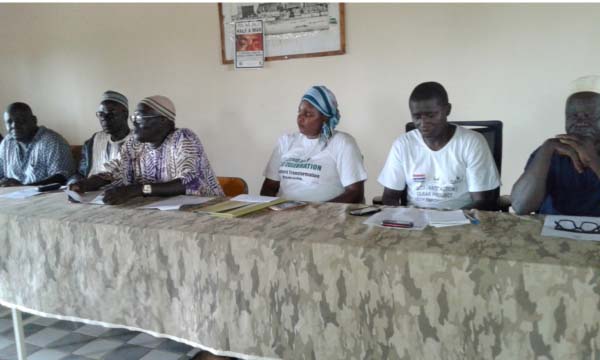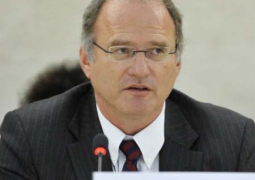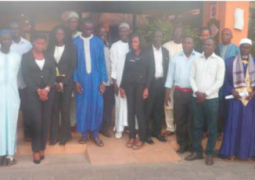
(Tuesday September 06, 2016 Issue)
Officials
of Nema/Chosso Project, under the Department of Agriculture, are intensifying
efforts to raise public awareness on climate change to enhance food production.
On
Sunday, the officials held community sensitisation in Kerewan to educate key
stakeholders in climate change adaption.
Speaking
on the occasion, Aji Oulaye Njie-Sowe, climate change adaptation specialist of
Nema/Chosso project, said climate change is real and it remains a development
challenge which has enormous economic and social consequences.
She
said The Gambia is vulnerable to the effects of climate change as the majority
of the population depend on natural resources for livelihood.
“Climate
change engenders the livelihood of small holder farmers,” Mrs Njie-Sowe
said. She added that there is a need for
concerted efforts in adopting positive change through integrated approach to
enhance sustainable development.
Deputy
Governor Mustapha Saidy of NBR commended NEMA/CHOSSO project for enhancing
public awareness on climate change and resilience building.
He
urged farmers to be vigilant and proactive in adopting climate change related
issues to enhance food production and sustainable livelihood development.
Deputy
Governor Saidy called on farmers to plant trees on farm boundaries and initiate
community forest to mitigate the effects of climate change.
Alasan
CMB Bah, officer-in-charge of North Bank Regional Agricultural Directorate,
also hailed the farmers for their support to food production and
diversification in the drive to national food security.
He
advised farmers to be steadfast to disseminate information on climate change
and resilience building.
Miki
Jawla, NEMA project regional field coordinator for North Bank, Lower River and
West Coast regions, underscored the importance of the project in building the
capacity of farmers on climate change adaptation and resilience building to
boost food production and productivity.
He
said this would reduce vulnerability from climate-induced hazards and increased
adaptive capacity in a changing environment.
Mr
Jawla affirmed that the intervention would increase community and household
climate change adaptation as well as water harvesting and forest restitution
interventions.
Babanding
Sanyang, senior forestry, communication and extension officer at the Department
of Forestry, lauded NEMA/CHOSSO Project for enhancing human capacity in
protecting and improving the production potentials.
Alpha
Jallow of the Department of Water Resources said climate change affects water
availability, quantity, quality, timing, and distribution.
“Climate
change will affect the people who rely on water for everyday use; therefore,
combating the effects of climate change calls for concerted efforts of all
stakeholders,” he said.




